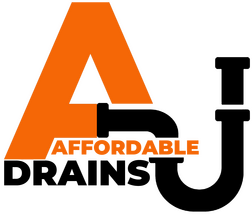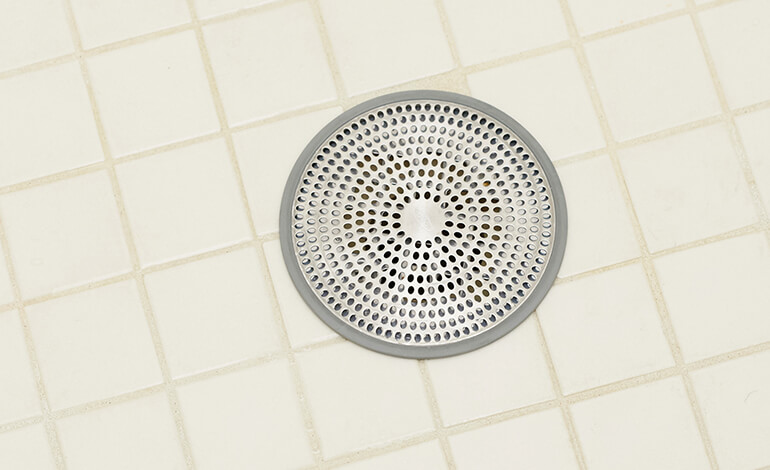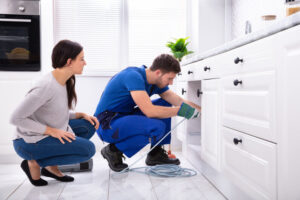The Dangers of Drain Clogs in Spokane and Surrounding Areas
Most Spokane homeowners know the frustration of watching their sink slowly fill with water, even though the drain is wide open. Drain clogs are a universal problem, and they always seem to occur at the most inconvenient times. While it’s tempting to grab a plunger or pour chemicals down the drain, these quick fixes may not always be safe or effective in the long run.
At Affordable Drains, we understand the unique challenges Spokane and Northern Idaho homeowners face when it comes to their plumbing. Below, we’ll explore the common causes of drain clogs, how to identify them, and how to prevent them. Plus, we’ll explain why professional drain cleaning is often the best solution for keeping your plumbing system in top shape.
What Causes Drains to Clog?
Your home’s drainage system can become clogged for a variety of reasons. Here are some of the most common culprits:
- Hair and Soap Scum: These are frequent offenders in bathroom drains, where hair and soap residue can build up and create stubborn blockages.
- Food Particles: Kitchen sinks often fall victim to food debris, especially when scraps are washed down the drain without proper disposal.
- Grease and Fat: Grease solidifies as it cools, creating sticky blockages that trap other debris.
- Toilet Paper Buildup: Excessive toilet paper use can clog pipes, especially in older plumbing systems.
- Mineral Buildup: Spokane’s mineral-rich water can cause scale deposits that gradually narrow your pipes.
- Damaged Pipes: Cracks, corrosion, or tree root intrusion can obstruct water flow and lead to recurring clogs.
Signs You Need Professional Drain Cleaning
While some clogs can be resolved with DIY methods, others require the expertise of a professional. Here are the key signs that it’s time to call Affordable Drains for help:
-
Frequent, Recurring Clogs
- If you’re constantly dealing with clogs in the same drains, it’s a sign of a deeper issue within your plumbing system.
-
Multiple Clogged Drains
- When several drains in your home are clogged simultaneously, it often points to a blockage in your main sewer line.
-
Slow Drainage
- A slow-draining sink, tub, or shower indicates that debris is gradually building up in your pipes.
-
Foul Odors
- Persistent, unpleasant smells coming from your drains are often caused by decaying food, hair, or other materials trapped in your pipes.
-
Strange Noises
- Bubbling or gurgling sounds from your drains may signal trapped air caused by a blockage.
-
Backed-Up Water or Sewage
- Seeing water or sewage backing up into your sinks, tubs, or basement floor drain is a serious issue that requires immediate attention.
-
Overflowing Toilets
- An overflowing toilet is not just messy—it’s a sign that your plumbing system may be completely clogged.
-
Old Plumbing Fixtures or Systems
- Older homes in Spokane often have outdated plumbing that is more prone to clogs and corrosion.
-
Tree Root Intrusion
- Tree roots can grow into your sewer lines, causing significant blockages that require professional tools to remove.
DIY Myths and What Doesn’t Work
Many homeowners turn to DIY solutions for clogs, but not all methods are effective—or safe. Here are some common myths to avoid:
-
Myth: Baking Soda and Vinegar Fix Everything
- While this combination might help with minor grease buildup, it’s not strong enough for stubborn clogs or deep blockages.
-
Myth: Store-Bought Drain Cleaners Are Safe and Effective
- These harsh chemicals can corrode your pipes over time and often fail to fully clear the clog, leading to recurring issues.
-
Myth: Wire Hangers Are a Quick Fix
- Using a wire hanger to clear a clog can scratch or damage your pipes, especially in older homes.
-
Myth: Flushing Hot Grease Down the Drain Is Fine
- Even with hot water, grease will eventually solidify and cause blockages. Always dispose of grease in the trash instead.
-
Myth: Plungers Can Clear Any Clog
- While plungers work for minor blockages, they won’t resolve deeper issues like tree roots or mineral buildup.
How to Prevent Drain Clogs
Preventing clogs is easier than dealing with them after they occur. Here are some tips to keep your drains clear:
- Scrape food debris into the trash before rinsing dishes.
- Use drain strainers to catch hair and food particles.
- Avoid pouring grease, fat, or oil down the drain.
- Limit toilet paper use and never flush cleaning wipes.
- Periodically rinse your drains with hot water to clear minor buildup.
- Schedule annual drain cleaning services to catch and address issues early.
Why Professional Drain Cleaning is the Best Solution
While DIY fixes may offer temporary relief, they often fail to address the root cause of the problem. At Affordable Drains, we use advanced tools like HD color video inspections and high-pressure hydro jetting to diagnose and resolve even the toughest clogs. Our professional services ensure your drains are not only cleared but also protected from future issues.
Affordable Drains: Spokane’s Trusted Drain Cleaning Experts
If you’re dealing with a stubborn clog or want to prevent future drainage issues, Affordable Drains is here to help. We provide 24/7 emergency drain cleaning services for residential and commercial properties in Spokane and Northern Idaho.
Don’t let a clogged drain disrupt your day or damage your home. Call us at (509) 683-7246 or visit www.affordable-drains.com to schedule your service today. Let us show you the difference professional drain cleaning can make!
Learn More:
DIY vs Professional Drain Cleaning: What Spokane Homeowners Need To Know
10 Signs Spokane Homeowners Need Professional Drain Cleaning





